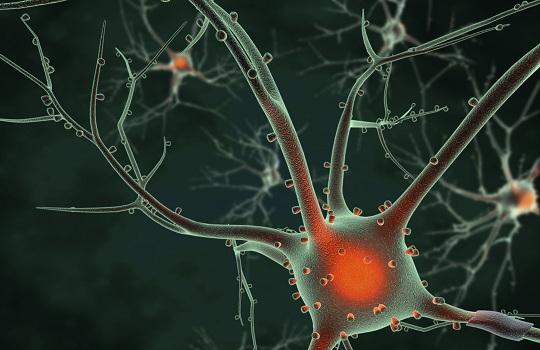How teams really work, from the perspective of the brain – part 1

I have to confess I have always been rather sceptical about the management theory on teams, specifically the whole forming, storming, norming and performing idea. In my experience teams either skipped the storming stage or if they go through it, they never move on to the performing stage. And teams that did perform didn’t stay […]
What’s new in neuroscience? Reporting from the NeuroLeadership Summit 2014

I'm just back from the NeuroLeadership Summit. Before I went Jamie [HRZone editor] asked me to write an article on what's new in neuroscience that’s relevant to HR. Judging by last year, I thought I would have loads of new science from the summit, but to be honest the approach to the agenda this year […]
Is it about time we forget Ebbinghaus?

The importance of Ebbinghaus Most Learning and Development professionals know of Hermann Ebbinghaus and the Forgetting Curve that his research developed in the late 1800’s. From a workplace performance perspective, we need to ensure that whatever skills or knowledge that need to be learnt to impact behaviour, gets remembered and can then be applied back […]
Book Review: Brain-Savvy HR by Jan Hills

Title: Brain-savvy HR: A neuroscience evidence baseAuthors: Jan HillsISBN: 978-0992900700Reviewer: David Evans, Burn Bridge Associates Reviewer’s rating: 4 out of 5 This formidable book has a lot going for it: it rides the crest of a number of waves that are very much ‘of the moment’. Its essence is the application of knowledge about neuroscience to the HR discipline, […]
How can I cope better with setbacks?

Jan Hills is one of our regular contributors – this article was adapted from the content in her new book, Brain-Savvy HR, available to buy in hard copy and for Kindle on Amazon. You and a colleague have been working on a new project proposal which gets rejected by the board. You're gutted, and finding […]
Interview: Gary Luffman, Director, thinkchange consulting

Gary Luffman is an Occupational Psychologist and Director of think. change. consulting. Gary and the think. change. team focus on bringing together business expertise, neuroscience and psychology to help understand more about our own and others’ brains. This forms the basis of practical and tangible applications in the workplace to help individuals and organisation succeed […]
Neuroscience and leadership development – what can we learn?

Pilots, surgeons, F1 drivers and astronauts regularly use simulation exercises to prepare them for challenging situations. But new research from Ashridge suggests that simulations can also help business leaders think more clearly under stress and make effective decisions in volatile and uncertain situations. Ashridge has been working alongside the University of Reading on a pioneering […]
The Neuroscience of Interviewing – Part 2

This article is the second of a two-part series. View the first article: The Neuroscience of Interviewing – Part 1 Welcome back. I am so glad to see you again and that you have chosen to continue our dialogue. You will remember from our last meeting that we explored the topics of growth and fixed […]
The Neuroscience of Interviewing – Part 1
This article is the first of a two-part series. View the second article: The Neuroscience of Interviewing – Part 2 If you are involved in the interview process for your company and you don’t know the answers to these questions then you might want to read on…. "Tell me about your approach to hiring – do you […]
Stress is helpful – but if you think it’s not, it’ll mess with your head

Stress seems to be something we are all subject too. In a recent survey by ThoughtLeaders 83% of people said that they had experienced stress that affected their performance at work. We mostly talk about the negative impacts and whilst they are many there is some interesting research that may have us thinking differently about […]
Developing corporate entrepreneurs to drive innovation – part 2
Find out more about how to drive innovation through coaching in this free whitepaper. AOEC are also promoting a Twitter chat on coaching and innovation that starts at 8pm on Thursday February 13th. Why not join the conversation with hashtag #aoecinnov? This is part two of a two-part article series – read Developing corporate entrepreneurs to drive innovation […]
Developing corporate entrepreneurs to drive innovation – part 1
Find out more about how to drive innovation through coaching in this free whitepaper. AOEC are also promoting a Twitter chat on coaching and innovation that starts at 8pm on Thursday February 13th. Why not join the conversation with hashtag #aoecinnov? This is part one of a two-part article series – read Developing corporate entrepreneurs to drive […]
Brain-savvy leaders: what science has revealed in 2013
During 2013 we have seen a continued interest in neuroscience and the implications of its findings for leaders and business. Many of my articles in HR Zone have been read by thousands of people. Obviously I am very pleased about this and the interesting comments people have made about the articles and the science behind […]
What does science say about making New Year resolutions stick?
One of the reasons it is hard to stick to your resolutions is that you are essentially stopping a habit. We often talk about habits. We say we’ve developed a bad habit. Or a good one. But what is a habit? When you first decide to do something new, maybe something like challenging the CEO […]
Feedback doesn’t work. Here is why and what you can do about it
Feedback is the backbone of most people management processes. Yet is there any evidence that it works? Anecdotally many people tell me it doesn’t and my own experience over many years of managing people is that positive feedback focused on what is being done right does work but negative or constructive feedback doesn’t. I say […]
Nelson Mandela has passed away and we’ve lost a visionary leader
The sad news of Nelson Mandela’s passing came on Thursday 5th November, at about 10pm. As the world responds to the news, we take a look at his life and leadership and ask what lessons we can take away for personal success and leadership from the man who made history as the first black President of […]
Are you in cat or lion mode? Using neuroscience and physiology to manage your performance

Zlatan Ibrahimovic, the Swedish football captain used the terminology above, to describe how Jose Mourinho made him feel when he worked with him at Inter Milan. – "He turned me from a cat into a lion, dragged things out of me at Inter that no one had done before". Why am I writing about a […]
Five ways neuroscience can improve your engagement results
How to create the super powered engagement leader Engagement is a hot topic but do HR functions really care about it or has it become just another process to run i.e. ‘it’s the survey season again’, rather than the outcome of leadership and work practice? Clearly something isn’t working as all the data says our […]
How to change habitual behaviour by remodelling your brain
This article was adapted by Amy Brann from her book '‘Make your brain work' and offers insights on how to alter negative behavioural habits which can impact the morale, engagement and trust of the people you work with. This article originally appeared on our sister site TrainingZone. As professionals, do we fully appreciate how tiny differences […]
Finding the X Factor – the neuroscience of presence

You will have experienced the feeling of a person, maybe a leader, shop assistant or friend who is completely focused on you and your needs. Their level of connection is palatable. For me it is best summed up in the words of a West African greeting, ‘Sawa bona,’ which translates to ‘I see you.’ The […]
